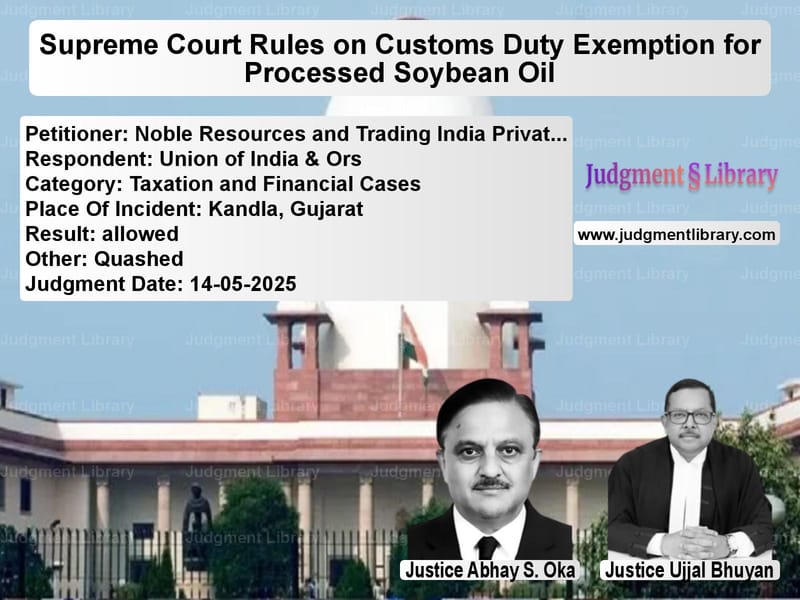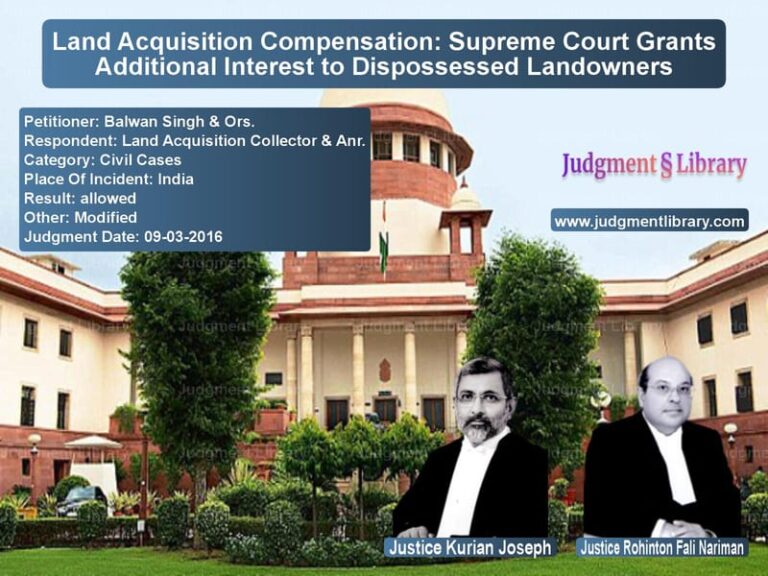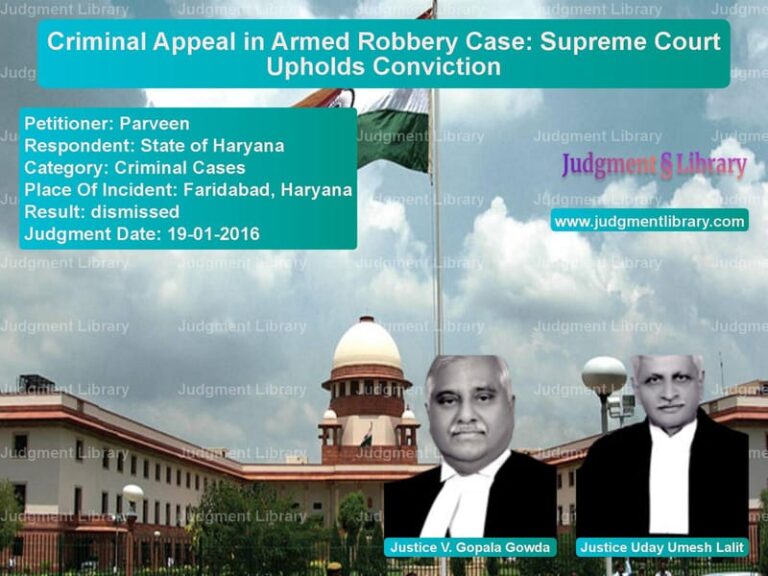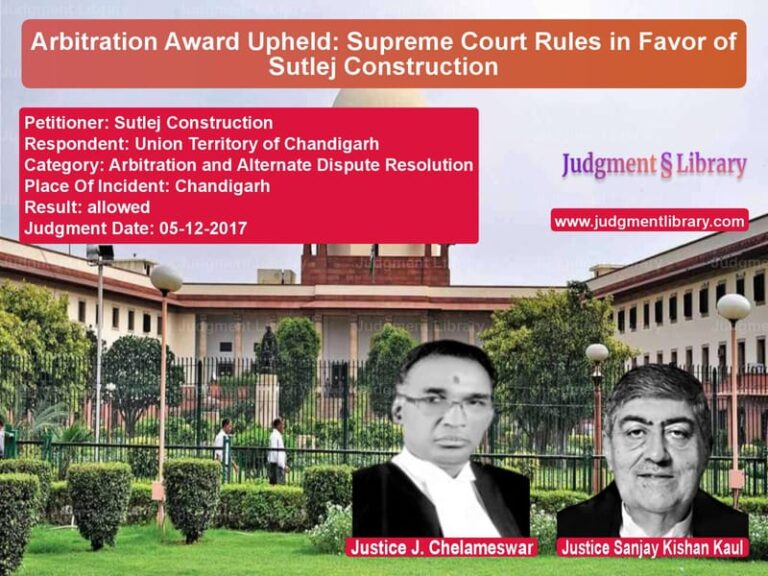Supreme Court Rules on Customs Duty Exemption for Processed Soybean Oil
In a significant ruling that clarifies the distinction between agricultural products and manufactured goods for customs duty purposes, the Supreme Court of India delivered a landmark judgment on May 14, 2025. The case involved Noble Resources and Trading India Private Limited, formerly known as Andagro Services Pvt. Ltd., which had been denied customs duty exemption for its imports of crude degummed soybean oil under the Duty Free Credit Entitlement (DFCE) scheme.
The dispute originated in 2006 when the appellant company imported crude degummed soybean oil under two Bills of Entry dated July 26 and 27, 2006, claiming exemption from customs duty based on Notification No. 53/2003-Cus. dated April 1, 2003. This notification provided duty exemption for imports under the DFCE scheme but specifically excluded ‘agricultural and dairy products’ from its benefits.
The Customs Department issued a show-cause notice on August 30, 2006, contending that the appellant was not eligible for duty exemption since crude degummed soybean oil was an agricultural product. The department also argued that there was no nexus between the imported product (crude degummed soybean oil) and the exported products (including soybean meal extract) as required under the scheme.
The Assistant Commissioner of Customs confirmed the demand of duty amounting to Rs. 1,00,38,321 through an order dated January 9, 2007. This order was challenged before the Gujarat High Court, which dismissed the writ petition on August 5, 2019, leading to the present appeal before the Supreme Court.
The appellant, represented by learned senior counsel, made several key arguments before the Supreme Court. “The benefit given by the statutory notification bearing No. 53/2003-Cus. dated 01.04.2003 could not have been whittled down by the departmental circular No. 10/2004-Cus. dated 30.01.2004,” he contended. He emphasized that “the circular expanded the exclusion by adding the words ‘any product derived from agricultural origin’. Thus, the circular had gone beyond the scope of the statutory notification which is not permissible.”
The appellant’s counsel painstakingly explained the manufacturing process: “Through a process of manufacture, the agricultural product soybean loses its identity and becomes another product called crude degummed soybean oil which is a distinctly marketable commodity.” He further argued that “the expression ‘agricultural product’ has not been defined in the notification No. 53/2003, its meaning has to be ascribed in terms of commercial parlance.”
Additional arguments included that the appellant had imported through MMTC (Metals and Minerals Trading Corporation), which was specifically permitted under subsequent notifications, and that the imported product had a clear nexus with the exported product group of food products.
The respondents, represented by the learned Additional Solicitor General, defended the department’s position. “The precise question involved in the present appeal is whether appellant was entitled to exemption from customs duty, additional duty and special additional duty in terms of the notification No. 53/2003-Cus. dated 01.04.2003,” he submitted. He argued that “import of crude degummed soybean oil is in the nature of an agricultural product or a product of agricultural origin.”
The respondents pointed out that “appellant itself classified the imported product under Custom Tariff Heading (CTH) 15071000 which falls under Chapter 15 of the Indian Trade Classification (Harmonized System). This chapter specially covers animal or vegetable fats and oils, prepared edible fats and animal or vegetable waxes.” They maintained that “the circular did not add anything new but merely clarified and articulated what was implicit in the notification.”
The Supreme Court, comprising Justices Abhay S. Oka and Ujjal Bhuyan, delivered a comprehensive judgment analyzing the legal issues. The Court first addressed the crucial question of whether the circular could override the statutory notification. “By way of the subsequent administrative circular dated 30.01.2004, the excluded goods of agricultural and dairy products as per the statutory notification dated 01.04.2003 has been enlarged to include all types of products derived from agriculture/dairy origin including crude edible oil,” the Court observed.
The Court relied on its earlier precedent in Tata Teleservices Ltd. Vs. Commissioner of Customs where it was held that “the concerned circular sought to impose a limitation on the exemption notification which the exemption notification itself did not provide.” The Court reiterated the principle from Union of India Vs. Inter Continental that “the department could not, by issuing a circular subsequent to the notification, add a new condition to the notification thereby either restricting the scope of the exemption notification or whittle it down.”
The Court thus concluded that “by way of the circular dated 30.01.2004, Board could not have curtailed the benefits granted to the appellant under the statutory notification dated 01.04.2003 by expanding the scope of the exclusionary clause ‘other than agricultural and dairy products’.”
The Court then turned to the central question of whether crude degummed soybean oil constitutes an agricultural product. The judgment extensively analyzed the manufacturing process described by the appellant, which involved multiple steps: storage in cylos, cleaning, cooking, flaking, extraction using hexane solvent, and distillation.
The Court applied the well-established test for ‘manufacture’ as defined in Union of India Vs. Delhi Cloth and General Mills Co. Ltd.: “‘Manufacture’ implies a change but every change is not manufacture. Every change of an article is the result of treatment, labour and manipulation. But something more is necessary to make it ‘manufacture’. There must be transformation; a new and different article must emerge having a distinctive name, character or use.”
The Court further cited Deputy CST Vs. Pio Food Packers, which held that “it is only when the change, or a series of changes, take the commodity to the point where commercially it can no longer be regarded as the original commodity but instead is recognized as a new and distinct article that a manufacture can be said to take place.”
The Court criticized the High Court’s reasoning that because crude degummed soybean oil needed further refinement for human consumption, it didn’t acquire a distinct identity. “The test is not whether the end product is a consumable product or not. Therefore, the High Court clearly missed the point by holding that because crude degummed soybean oil was not further refined and therefore was not a consumable item; it did not have a distinct identity,” the Court stated.
On the definition of ‘agricultural product’, the Court referred to dictionary meanings and judicial precedents. It cited Black’s Law Dictionary defining agriculture as “the science or art of cultivating soil, harvesting crops and raising livestock” and Kerala High Court’s definition of agricultural product as “things which have a situs of their production upon the farm and which are brought into condition for uses of society by labour of those engaged in agricultural pursuits as contra-distinguished from manufacturing or other industrial pursuits.”
The Court concluded: “Crude degummed soybean oil is a product different and distinct in character and identity from soybean. The process carried out by the appellant using soybean as raw material and ending in the product crude degummed soybean oil is manufacturing. Crude degummed soybean oil is not an agricultural product.”
The Supreme Court allowed the appeal, setting aside both the High Court’s judgment and the Assistant Commissioner’s order. The ruling establishes important precedents regarding the interpretation of exemption notifications, the limitation of administrative circulars in overriding statutory notifications, and the distinction between agricultural products and manufactured goods in customs law.
This judgment provides significant clarity for businesses engaged in processing agricultural products, ensuring that goods that undergo substantial manufacturing processes resulting in new distinct products cannot be denied benefits available to manufactured goods merely because they originated from agricultural raw materials.
Petitioner Name: Noble Resources and Trading India Private Limited.Respondent Name: Union of India & Ors.Judgment By: Justice Abhay S. Oka, Justice Ujjal Bhuyan.Place Of Incident: Kandla, Gujarat.Judgment Date: 14-05-2025.Result: allowed.
Don’t miss out on the full details! Download the complete judgment in PDF format below and gain valuable insights instantly!
Download Judgment: noble-resources-and-vs-union-of-india-&-ors-supreme-court-of-india-judgment-dated-14-05-2025.pdf
Directly Download Judgment: Directly download this Judgment
See all petitions in Customs and Excise
See all petitions in Tax Refund Disputes
See all petitions in Judgment by Abhay S. Oka
See all petitions in Judgment by Ujjal Bhuyan
See all petitions in allowed
See all petitions in Quashed
See all petitions in supreme court of India judgments May 2025
See all petitions in 2025 judgments
See all posts in Taxation and Financial Cases Category
See all allowed petitions in Taxation and Financial Cases Category
See all Dismissed petitions in Taxation and Financial Cases Category
See all partially allowed petitions in Taxation and Financial Cases Category







